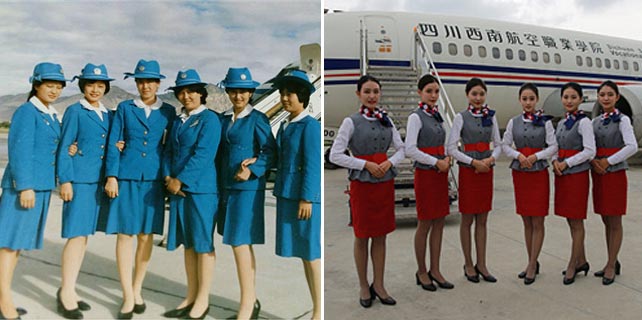China calls for restraint on peninsula
US bombers fly over area as situation remains 'highly complex and delicate'
Beijing has again called for restraint on all parties involved in the nuclear tension on the Korean Peninsula, after the US military flew two strategic bombers over the area in a show of force late on Tuesday.
The US bombers had taken off from the Andersen Air Force Base in Guam, and it was the first time US bombers have conducted training with fighters from both Japan and South Korea at night, Reuters reported on Wednesday.
"The current situation on the Korean Peninsula remains highly complex and delicate," Foreign Ministry spokeswoman Hua Chunying told a regular briefing on Wednesday.
"We hope all the relevant parties can remain restrained and avoid taking actions to provoke each other and aggravate antagonism and tension."
Hua also said Beijing and Moscow conducted a consultation on the security situation in Northeast Asia on Tuesday, in which the two sides expressed "high concern".
"Both of them believe that all the relevant parties should remain restrained, refrain from actions that may escalate tensions and faithfully uphold peace and stability of the Korean Peninsula and the region," the spokeswoman said.
Moreover, the two sides reiterated the opposition to the deployment of the Terminal High Altitude Area Defense (THAAD) missile defense system in the Republic of Korea by the US and the ROK, she said.
The latest US military action took place as US President Donald Trump met members of his national security team early Tuesday for a briefing and discussion that "focused on a range of options" to respond to threats from the DPRK, according to a statement of the White House.
In another development, US Deputy Secretary of State John J. Sullivan will travel to Tokyo and Seoul for a trilateral meeting on Oct 18 that will focus on "strategic coordination related to the urgent threat from DPRK's advancing nuclear weapons program", the Department of State said in a release on Wednesday.
"We don't know if the North Koreans will eventually be prepared to accept meaningful limits on their nuclear program," Robert Einhorn and Michael E. O'Hanlon, two senior fellows with the Brookings Institutions, said in a recent article.
"The only way to find out is to sit down with them at the negotiating table," they said.
In addition to intensifying international pressures, getting them back to the table will also require finding a formula for initiating talks that "addresses DPRK concerns while protecting US and allied security", they said.
The US president tweeted on Monday, "Our country has been unsuccessfully dealing with North Korea for 25 years, giving billions of dollars & getting nothing. Policy didn't work!"
On Saturday, he tweeted how negotiations have failed for 25 years and said "only one thing will work" with Pyongyang, remarks that some analysts said hinted that military action was on his mind, according to newswire reports.
In commenting on the tweets, Hua said, "We hope that various parties can strictly observe and implement the UN Security Council resolutions, refrain from provoking each other and aggravating the contradiction, exercise restraint and caution to ease the tension."
huanxinzhao@chinadailyusa.com









